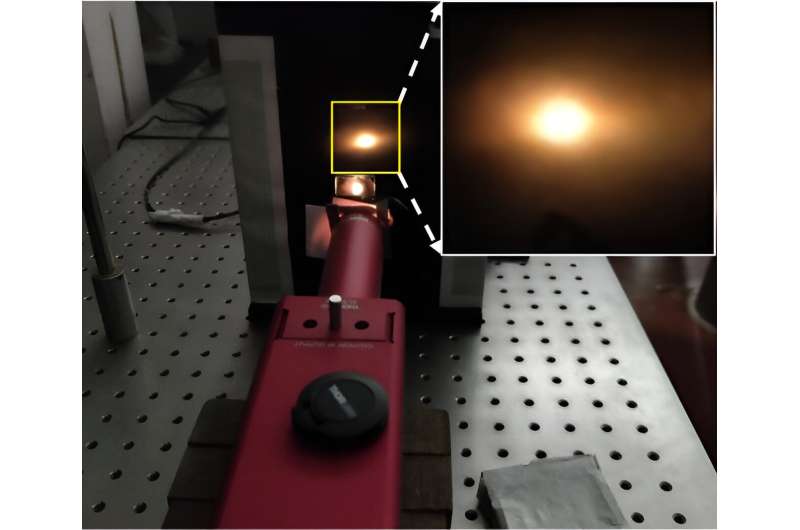
Metasurfaces are two-dimensional
counterparts of metamaterials, which are artificial materials that possess
unusual characteristics. With a variety of fascinatingly innovative and diverse
uses, these specially-prepared surfaces with engineered patterns can modify the
propagation of electromagnetic waves across the entire spectrum of wavelengths.
Though the journey of metamaterials began with metal-dielectric systems, the metasurfaces have gone all-dielectric, and are crucial in applications relating to optoelectronic devices such as solar cells and light emitting diodes (LED) to improve their efficiency through a mere surface effect.
Student researchers led by Professor R. Vijaya at the Photonics Laboratory of the Indian Institute of Technology Kanpur in India have recently used a low-cost soft lithography technique to fabricate dielectric metasurfaces of two complementary shapes of nanodimples and nanobumps on a flexible polymer substrate.
The work titled "Control of visible‑range transmission and reflection haze by varying pattern size, shape and depth in flexible metasurfaces" was published in Frontiers of Optoelectronics.
The researchers used a low-cost photonic crystal made by self-assembly with nanometric feature size as the master pattern. Thus, the doubly-economical approach gives metasurfaces that are thin, flexible, patterned and easy to laminate on any smooth surface.
Using samples with different pattern sizes and depths, their experiments on diffuse and total reflection and transmission established that the haze from these samples can be controlled throughout the visible range. This is useful in improving the efficiency of optoelectronic devices where the optical-to-electrical conversion efficiency gets limited due to the linear propagation direction of light.
Scattering effects of haze will be visible in the patch of haze surrounding the transmitted/reflected beam and an easy control on their extent can increase the amount of light absorbed in solar cells or extracted in LED. Simulation results based on methods also support the experimental findings.

 Previous page
Previous page Back to top
Back to top







